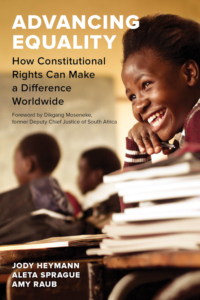Torres-Gil on Fixing the Caregiver Shortage
A Next Avenue series on individuals who are breaking new ground on issues surrounding aging highlighted the work of Fernando Torres-Gil, professor emeritus of social welfare and public policy at UCLA Luskin. Torres-Gil has has served as a senior advisor on aging to three U.S. presidents and has a long record of scholarship and advocacy in the field. He spoke of the urgent need for caregivers for older or disabled Americans, saying that the current workforce is underpaid and undervalued. “Young caregivers now will not work for $12 an hour to take care of a disabled person, not when they can go to In-N-Out and get $18, $19, almost $20 an hour and be better treated, have health insurance and have a job that doesn’t wear them down physically,” Torres-Gil said. He also weighed in on the 2024 election, expressing fears that political campaigns will reduce aging issues to “mudslinging, distortions and lies, no substantive discussion.”

